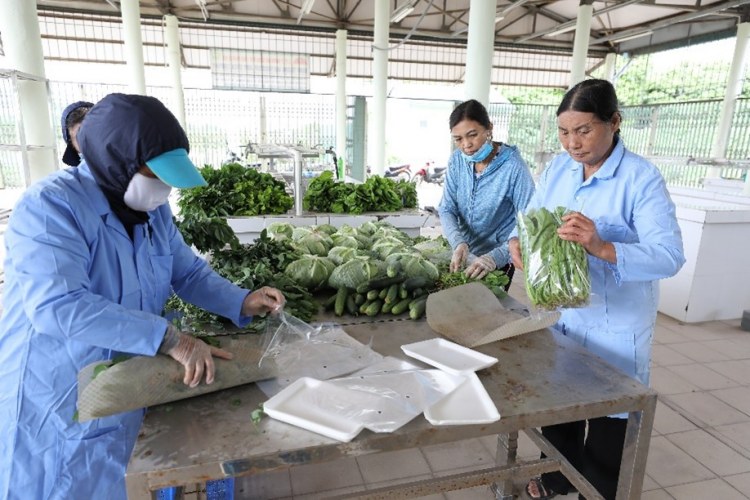“In the past, I rarely bought fruits due to financial constraints. I only focused on buying meat to prepare my daily meals”, says Nguyen Van Quy. And he is not the only Vietnamese consumer.
According to the recommendations of the World Health Organisation (WHO), adults should consume 400g of vegetables and fruits a day to reach their nutritional needs, prevent micronutrient deficiencies, overweight and obesity, and non-communicable diseases.
However, a 2019-2020 survey from Vietnam’s National Institute of Nutrition shows that Vietnamese people only consume between 66 and 77% of the recommended daily intake of fruits and vegetables.
This is particularly the case for low-income consumers in cities such as Hanoi: 80% of families do not meet the WHO’s recommended fruit and vegetable consumption per day. In addition, safe and organic products are not commonly traded in Hanoi’s lower-income urban and peri-urban wards, such as Van Chuong, Hang Bot, Bien Giang and Dong Mai, and hence also not commonly consumed.





